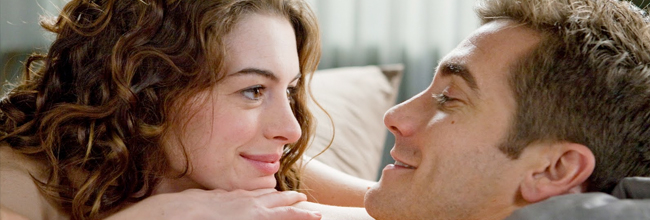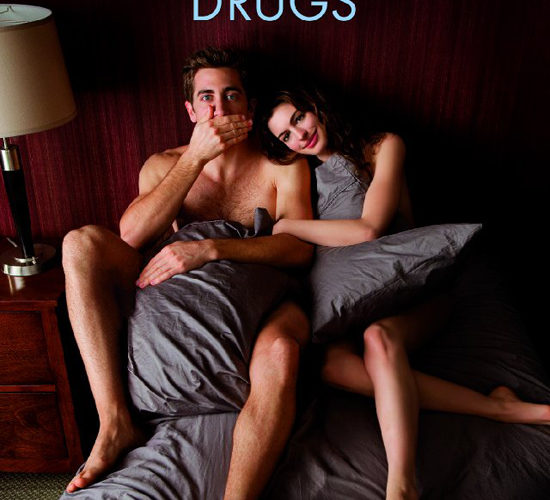
Love and Other Drugs is not a rom-com, and especially not the bland one implied by those ads. It certainly has some out of place comedic moments but surprisingly, it’s not the entirely generic exercise that some may be expecting.
That’s what helps Edward Zwick’s return to the small scale world. It doesn’t seep into each expectation you have for the genre and the film even pokes a bit of fun at conventions, while also certainly falling into most itself, but never becoming completely trope. There’s never a sense of tiredness or overwhelming conventionalism.
Here, we get a protagonist we don’t see too often: a self-aware jerk, named Jamie (Jake Gyllenhaal). Jamie is a womanizing, cocky, and smug man child. The opening credits perfectly establishes Jamie’s snobbishness. The film embraces the fact he’s not the most likable guy in the world and seeing him in his despicable ways makes him even more compelling of a romantic lead anti-hero. But of course when he meets Maggie (Anne Hathaway), he changes. The transition Jamie goes through isn’t the hokey “I have to change!” revelation that feels out of place and jarring, but it’s a subtle transition that he goes through within most of his arc. And Maggie is a bit of the same, so his change of persona is understandable. She can be a mess to deal with as well.
It’s a smart move not to play the the issue she is going through at hand as the big crux in their formed relationship. Most of the problems actually end up coming from Jamie, who’s stuck between choosing between a personal life or a love life. In the end, he picks the route you expect he would, but it feels surprisingly genuine. Even when acting cruel, Hathaway adds an extremist amount of charm to Maggie in order to make it believable that Jamie would choose to be with her, and looking more gorgeous than ever certainly helps.
The Achilles heel of Love and Other Drugs: its script, which needed far more tightening. A major proportion of the film is played as a comedy and it’s sometimes not nearly as satisfying as the drama unfolding. A countless number of jokes feel like they’re there to simply lighten the mood a bit. For example, why do we need a Viagra induced erection conflict (aka joke) for Jamie that causes a detour to the hospital five minutes after a dramatic turning point occurs? And why do we need a scene of Jamie’s brother creepily masturbating to a sex tape of his? We don’t need that, and the same applies to the utterly useless character that is Jamie’s brother. It’s moments like this that feel like bloat and studio-noted comedic relief.
There’s a lot to like and almost love in Zwick’s compelling and also rather sexy love story. If it had been trimmed down or tonally more concise, Love and Other Drugs could have possibly been an excellent film. With having two leads you come around to actually liking rather than despising, which is something rare in this genre, Loves and Other Drugs turns out to be a compelling and pleasant enough drama.

